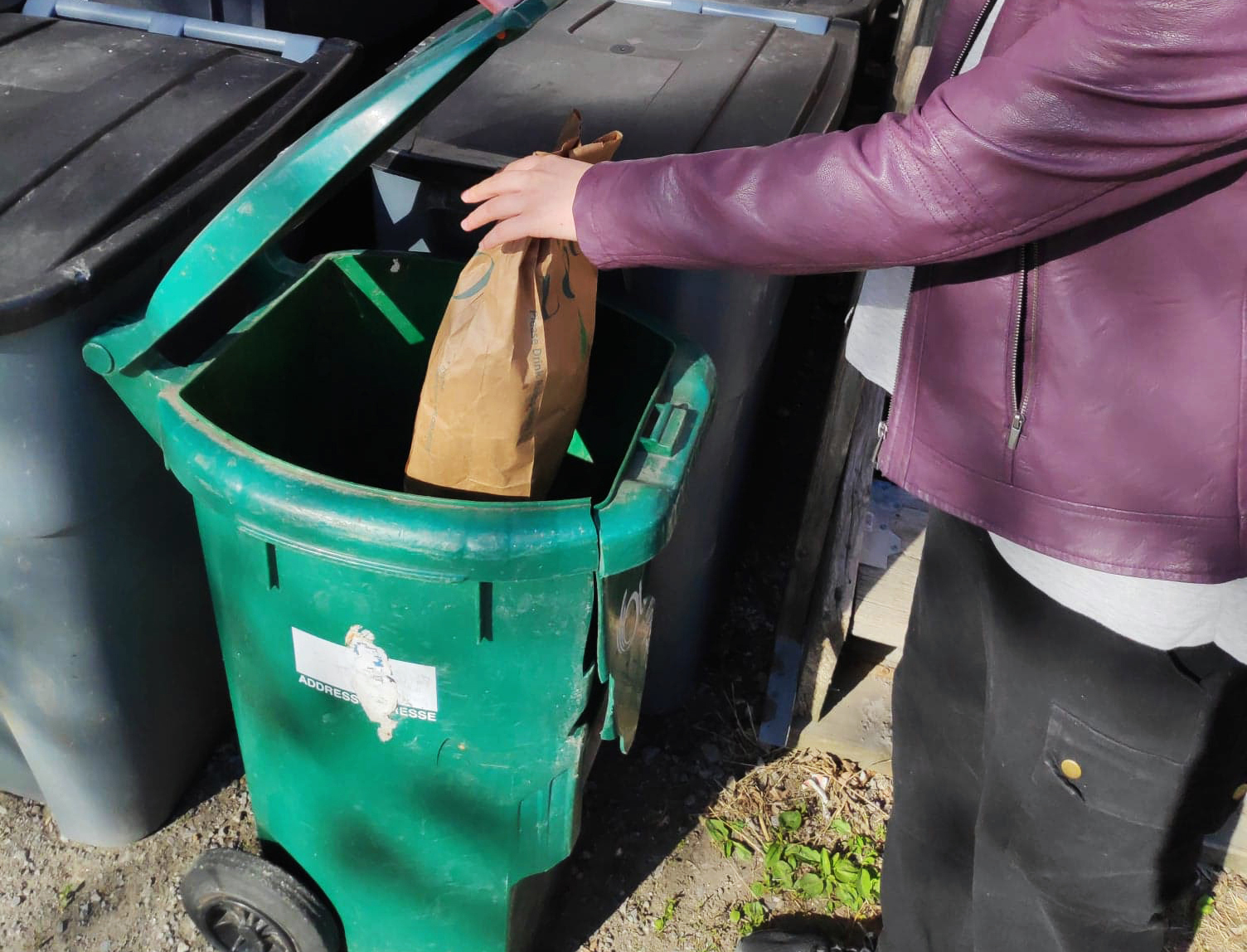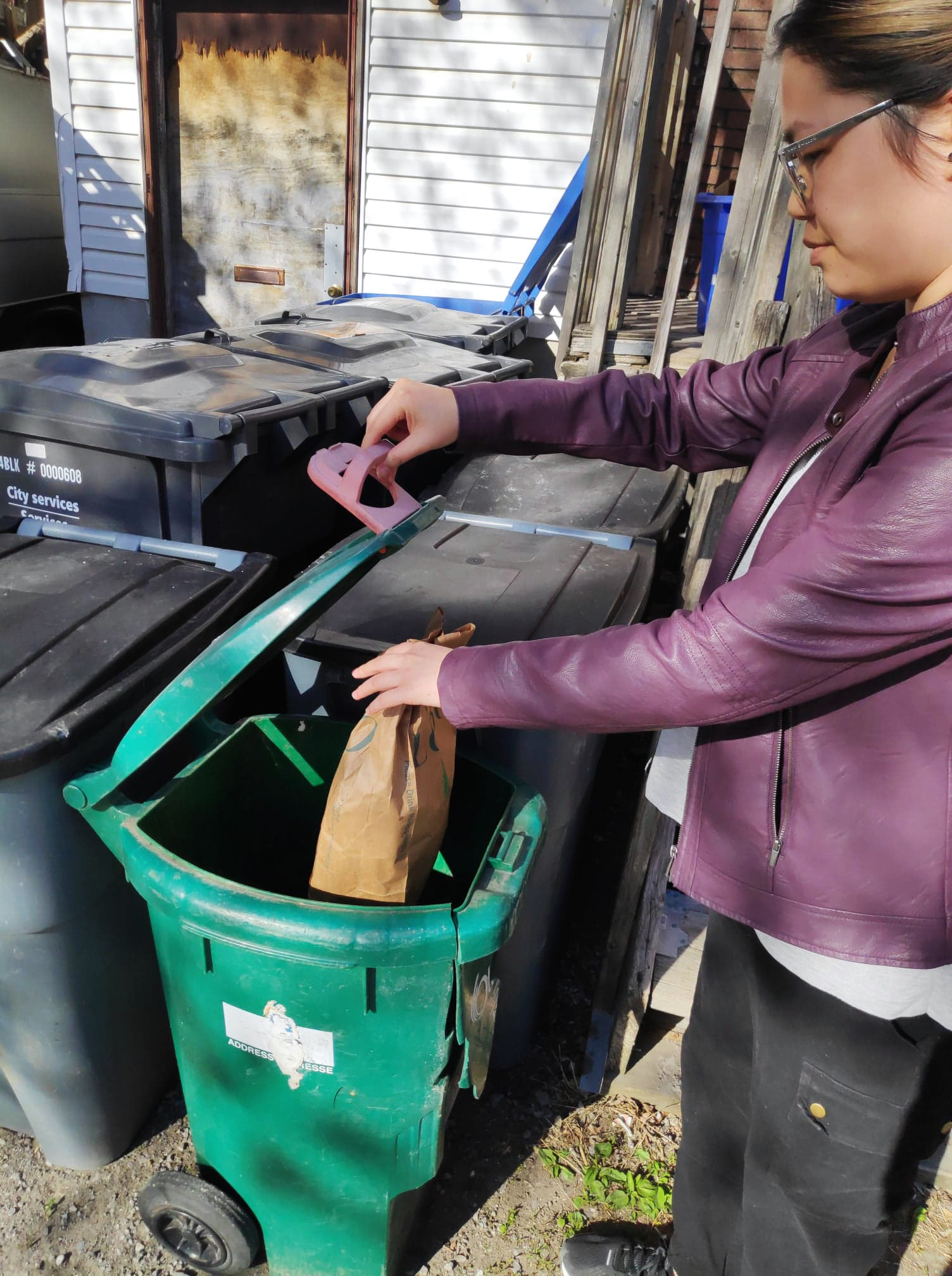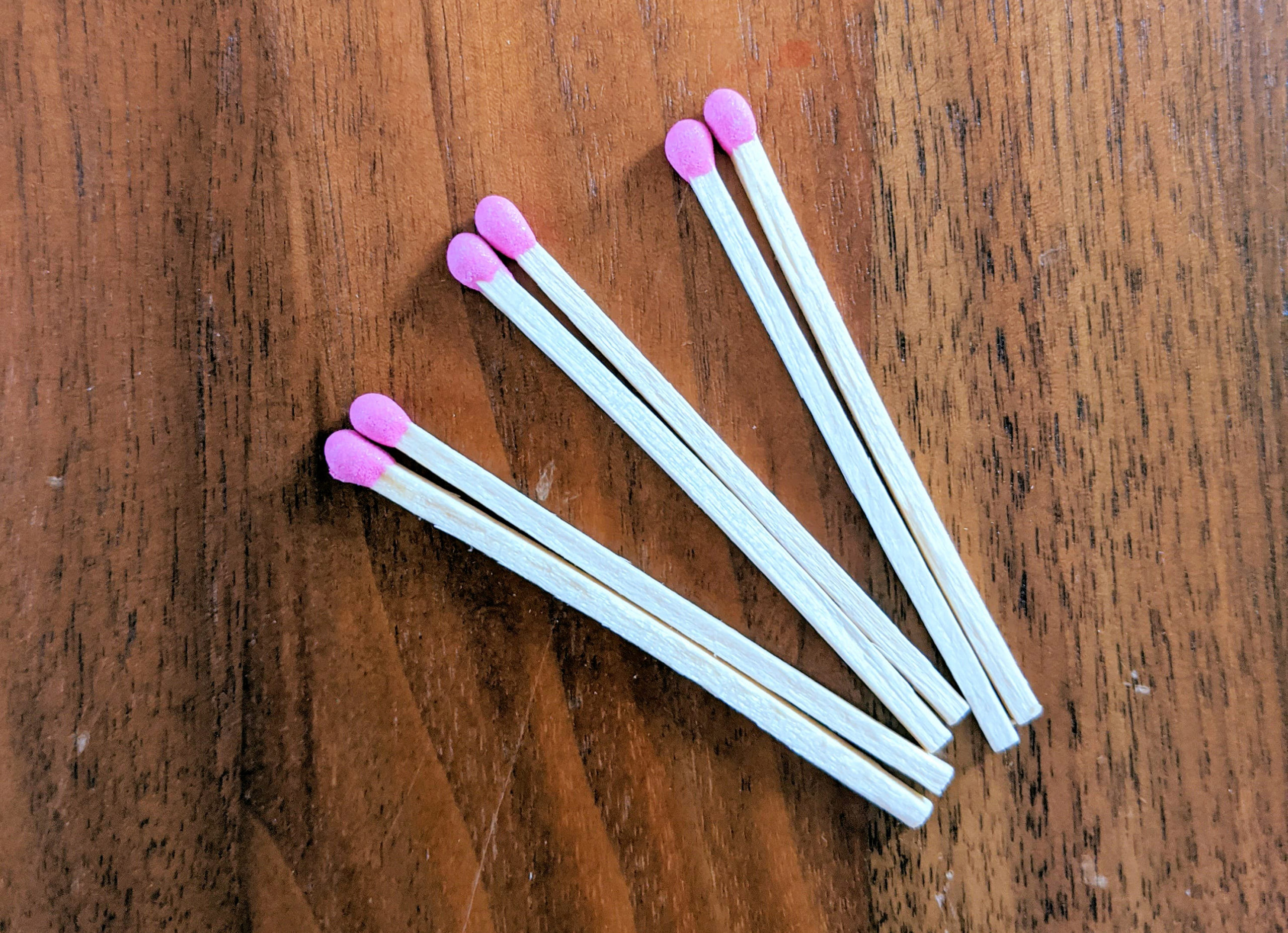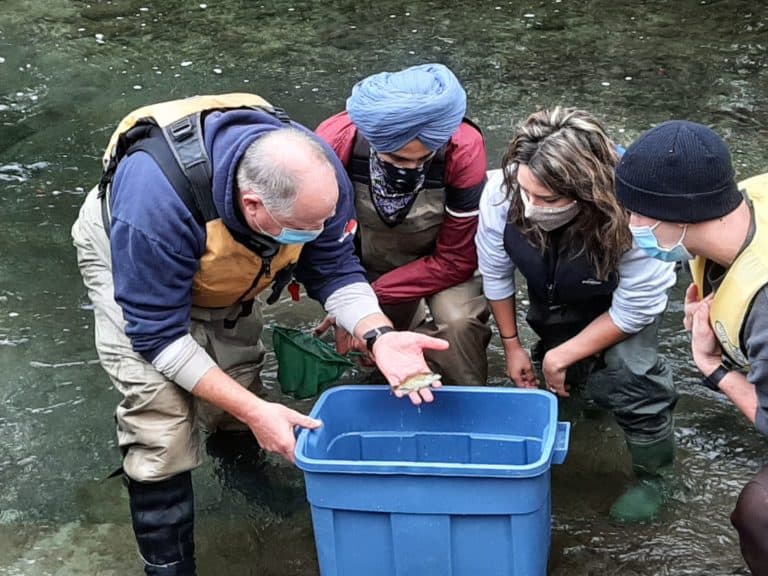
16 Surprising Things You Can Compost In Your Green Bin
Celina Feng is an Ocean Bridge ambassador from Ottawa, Ontario who is exploring new ways to take care of her planet and engage other youth in her community in improving ocean health and ocean literacy.
As we collectively spend more hours at home during the pandemic, the weather is turning nicer and many of us are looking for ways to pass the time. If you’ve already exhausted the Netflix catalog and finished your spring cleaning, why not turn your attention to the compost?

Let’s start with another question you may be asking: How can composting help our oceans?
When food breaks down at the landfill, it emits methane, a potent greenhouse gas. That can create a lot of excess heat which, when trapped in our atmosphere, contributes to warming up the ocean. The consequence? Devastation for underwater ecosystems around the world. Composting also creates nutrient-rich soil we can all use instead of harsh fertilizer that can seep into oceans and local waterways. So the more you compost, the more you’ll divert from the landfill and help protect our oceans and all the amazing biodiversity that depend on them!
Now, food scraps will take up most of your green bin’s real estate. But did you know there are a lot more compostable household items just under your nose? Keep reading for 16 surprising items you didn’t know were compostable!
Items accepted in all green bins and composts:
- Personal organic waste
- No kidding here – toenail clippings, hairballs (human and pet), and snot-laden tissues can all go in the compost. Notable exceptions would be diapers and feminine hygiene products.
- Paper towels
- If you’re using paper towels to wipe your mouth or clean up dollops of sauce, you can toss this into your green bin. Basically, if the paper towel is used to clean up food or drink messes, it can be composted.
- Natural fabrics
- You can compost cotton, wool, linen, hemp and natural felt, so long as they are not blended with synthetic materials.
- Certain single-use items
- We always suggest switching to reusable products wherever possible. But when it can’t be avoided, organic options divert the waste from the landfill. Examples include:
- wine corks
- used match sticks
- toothpicks
- coffee filters/tea bags
- bamboo cotton swabs
- 100% paper plates
- We always suggest switching to reusable products wherever possible. But when it can’t be avoided, organic options divert the waste from the landfill. Examples include:
- Post-it notes
- You may have some reservations regarding the glue. But we are happy to report that the glue is non-toxic and breaks down quickly in the compost (it’s a good idea to shred them before they got into the bin!)
- Pet products
- Just like with human hair and food, animal hair, feathers and food also belong in the green bin. But you may be surprised to hear that animal waste (including kitty litter) and animal bedding and cage liners for birds and hamsters can also be easily composted.
- Soap scraps
- Nobody enjoys showering with soap scraps. If you haven’t already invested in a sisal soap saving pouch, you can chuck that last bit of soap to the green bin.
- Parchment paper
- Food-soiled and unsoiled parchment paper are always accepted in the green bin! Due to its unwaxed nature, it breaks down much more quickly than its waxed cousin.
- Medical tape
- Cotton medical tapes and gauze are compostable. If you’re a frequent user of adhesive bandages, consider compostable options made of bamboo like the ones from PATCH.
- Latex Balloons, rubber bands
- If you know for sure that your balloons and rubber bands are made from 100% natural rubber and latex, you can safely put these in the compost.
- Lint + Sweater shavings
- Piling is every sweater-owner’s enemy! If you’re determined to give your knits and shirts a second life with a fabric shaver, you can toss the shavings into the green bin. Remember: This only applies to shavings from clothes made of natural fibres.
- Fireplace and barbecue ashes
- Whether you’re heating your home in the winter or grilling up a storm in the summer, the remnants of coal and firewood can absolutely go in the green bin.

Items you MAY be able to compost:
Unfortunately, composting programs will differ from region to region. What may be compostable in your municipality may not be in your neighbouring city or town! The following items are worth double-checking with your city’s waste program before throwing them into the green bin.
- 13. Cooking oils & fats
- The first step is to reuse cooking oils and fats when possible. After you’re done with it, pour it into an empty milk carton and allow it to cool before tossing it into the green bin. Do not pour oils, grease, and fat down the drain or toilet—they will clog your pipes!
- 14. Coffee cups
- Be sure to check in with your municipality’s recycling and composting program to see where takeaway cups fall. Some facilities may have more trouble with plastic contamination than others. These plastic-lined paper cups can fall into recycling, compost or straight to the garbage depending on where you live.
- 15. Microwave popcorn bags
- Movie night isn’t complete without a big bowl of buttery popcorn! After you’ve emptied the popcorn into a bowl, compost the unpopped kernels and the butter-slathered bag.
- 16. Butcher paper
- The salmon-colored paper wrapping your fresh meat from the butcher can go straight to the green bin.
Want to learn more? Check out this video on keeping plastics out of your compost!

Celina Feng in an Ocean Bridge youth ambassador who is originally from Markham, Ont. who now calls Ottawa home. Ocean Bridge brings together four teams of 40 young ocean leaders (ages 18-30) from rural, urban landlocked and coastal communities across Canada and empowers them to become ocean ambassadors in service of their communities. Ocean Bridge is an Ocean Wise initiative funded by the Government of Canada through the Canada Service Corps. Find out more.
Posted May 26, 2020 by Ocean Wise









